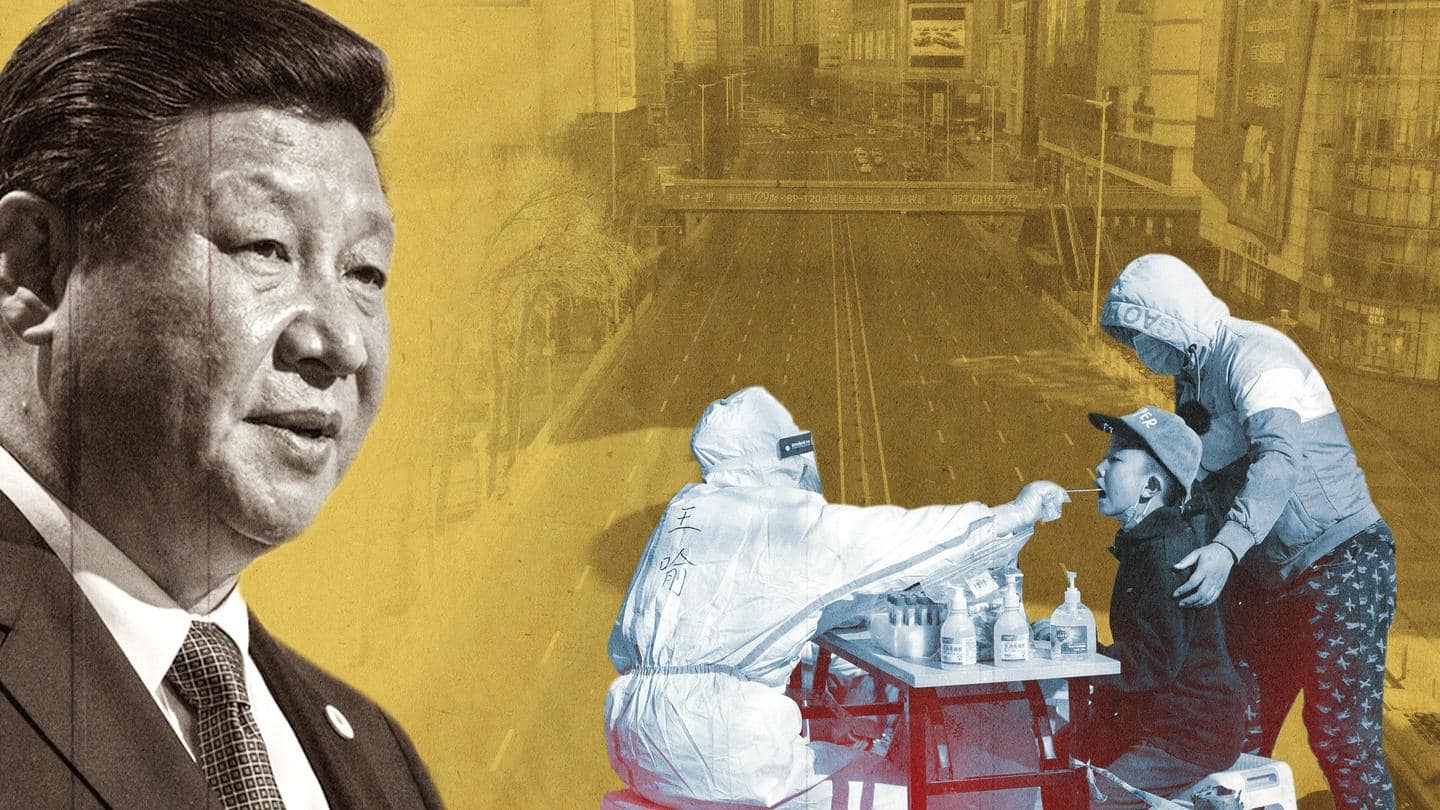
China: President Xi faces growing dissent over enforced COVID-19 lockdowns
What's the story
Despite the Communist Party of China's iron-clad authoritarian leadership, led by President Xi Jinping, fissures between Beijing and the public are considered to be widening.
Demonstrations and a robust pushback from the government across key Chinese population centers is increasing.
According to HT analysis of accessible sources, 430 civilian protests have occurred since January 2022, prompting 120 repressive responses by the Xi Jinping administration.
Context
Why does this story matter?
While such protests are regarded as normal in democracies such as in India, the United States, and Europe, the CPC's iron-fisted repression of dissent in China's rural areas renders public reaction virtually nonexistent.
This escalating anti-establishment sentiment in hot spots is a source of concern for Beijing, as President Xi Jinping will be re-elected for a third term as China's eternal leader in October-November.
Reason
Why and where are these protests happening?
The fundamental reason behind the unrest has been the harsh implementation of COVID-19 lockdowns in densely populated areas, resulting in salary delays, scarcity of everyday consumables, and the local administrations' apparent apathy.
Protests have occurred in Shanghai, Shandong, Beijing, Hong Kong, and Anhui.
In other regions, protests erupted into violent riots, prompting a coercive response from the state, leading to a vicious dissent-violence cycle.
China's dissenting cities
Shanghai, Beijing, Hong Kong among the most affected
In Shanghai, the state's brutal response to public protests against a prolonged lockdown led to unrest.
Hong Kong, the quasi-autonomous region that has executed the draconian national security law, witnessed a crackdown on public services and harassment of demonstrators by law enforcement agencies in response to these protests.
Meanwhile, Beijing, China's capital city, also reported such incidents along with the coercive disappearance of protestors.
Details
Details regarding the recent clampdowns
At least six Shanghai municipal districts have recently witnessed violent crackdowns or conflicts between citizens and police.
Daily wage laborers, manufacturing workers, and other industrial unions in Shandong province have reportedly organized to protest late payments and salary dues.
The administration's response reportedly varied from physical intimidation to protester incarceration.
Meanwhile, Factwire, a crowdfunded investigative journalism portal, declared its abrupt demise for unspecified reasons.
Chinese democracy
Since NSA's implementation, 58 civic organizations have been banned
The Hospital Authority Employees Alliance (HAEA), a pro-democracy medical alliance, has disbanded owing to "pressure from all sides and the current political stalemate."
Since the enactment of the national security law, at least 58 civic organizations, including HAEA, have disbanded.
Hong Kong police arrested three individuals on June 26 for possessing offensive weapons, publishing threats against government officials, or selling firearms for illegal assembly.